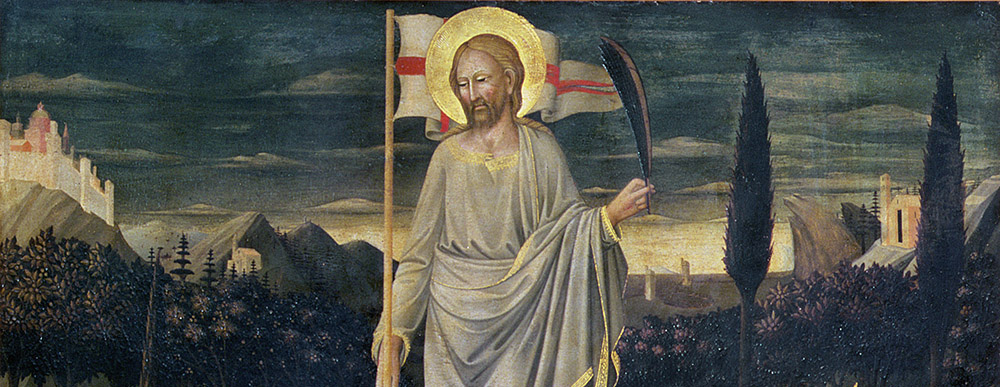Whatever we call it, Easter is plainly the solemn feast celebrating the resurrection of Christ. It is fine to say Happy Easter. The origin of the word Easter is complex. In the Greek language of the Gospels, the word pascha was used for the Hebrew word pesach, meaning Passover. Latin, too, took up this word, pascha. Christ is our Passover Lamb. Most of the European languages derived from Latin use the words derived from pascha such as Italian, pasqua; Spanish, pascua; and French, paques.
However, English drew from a different source. According to St. Bede (d. 735), the word Easter comes from the word Eoster, the Teutonic goddess of the rising light of day — that is, spring and of dawn. The Old German plural for dawn, or east, is ostern, and it also influenced the English word for Easter. As the English language developed, Easter came to denote that Sunday morning in spring when Christ, our true Light, rose.
Whatever pagan roots the word had (all our words have many different origins), the word Easter in present times clearly refers to the day of the resurrection of Jesus Christ.
People are free to say, “Happy Resurrection Day,” but they ought to avoid a harsh stance which holds that others who do not say this mean something less proper. We do not. If they are too insistent or inflexible about their preference they can come off as annoying and their practice could become a countersign, showing a lack of charity in the very act of exchanging Easter greetings.
The fact is, the Church, when she is strong, is often able to take non-Christian practices (as long as they are not intrinsically evil) and often “baptize” them by giving them Christian meaning. That clearly is the case with the name we most commonly use for Easter.
Rev. Msgr. Charles E. Pope is a priest of the Archdiocese of Washington, D.C.

